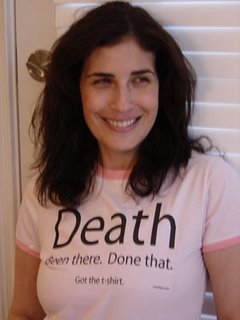Can a Psychopath Fake a Polygraph?
I went to a really great birthday party for a friend the other night. The guests were mainly in law enforcement and the chatting alternated between how people felt about their work to politics. A retired FBI polygrapher and I talked about the polygraph test and whether or not it could be faked (I know, it's a party and I should stick to talking about cheese dip but I hate small talk and I can't eat cheese dip due to my heart healthy diet). The polygrapher was adamant that the polygraph test was accurate but I remained a skeptic.
For the most part, psychologists believe there is little evidence to show that polygraphs are accurate lie detectors. I also pointed out to my colleague that psychopaths who show few physiological responses to lying might be able to pass a polygraph. His view was that we have so few psychopaths in our midst that he was unlikely to encounter one. This could not be further from the truth. Of course, as a forensic psychologist, I encounter more than my fair share (so my views may be skewed), but psychopaths are more prevalent in our normal society than most people, even in law enforcement, realize.
In fact, Dr. Robert Hare, the author of Without Conscience, estimates that there could be as many as 100,000 psychopaths in New York City alone--and at least 2 million in North America. Given that psychopaths--those without empathy for others who are typically con artists and users--have a higher rate of violent crime--it is very probable that my polygrapher friend would have numerous opportunites to encounter a psychopath in his work. I just wonder how many false negatives (a person is lying but looks like they are telling the truth) have been released based on erroneous results and how many innocent people who looked guilty have been charged after taking a polygraph.
It is an unsettling question and one that calls for further research into the use of the polygraph as a tool for spotting deception. There is work being done on functional brain imaging which shows that during lying, there is more activation in five brain regions. This research has not yet advanced to the stage where it can be used for real world application.
By the way, in case you were wondering about the large number of psychopaths in NYC, my guess is that psychopaths like to live in big cities where they can get away with their crimes and abuses. In a small town, it is likely that someone would know you and let others know about your bad deeds. That would make it harder to find victims.
For the most part, psychologists believe there is little evidence to show that polygraphs are accurate lie detectors. I also pointed out to my colleague that psychopaths who show few physiological responses to lying might be able to pass a polygraph. His view was that we have so few psychopaths in our midst that he was unlikely to encounter one. This could not be further from the truth. Of course, as a forensic psychologist, I encounter more than my fair share (so my views may be skewed), but psychopaths are more prevalent in our normal society than most people, even in law enforcement, realize.
In fact, Dr. Robert Hare, the author of Without Conscience, estimates that there could be as many as 100,000 psychopaths in New York City alone--and at least 2 million in North America. Given that psychopaths--those without empathy for others who are typically con artists and users--have a higher rate of violent crime--it is very probable that my polygrapher friend would have numerous opportunites to encounter a psychopath in his work. I just wonder how many false negatives (a person is lying but looks like they are telling the truth) have been released based on erroneous results and how many innocent people who looked guilty have been charged after taking a polygraph.
It is an unsettling question and one that calls for further research into the use of the polygraph as a tool for spotting deception. There is work being done on functional brain imaging which shows that during lying, there is more activation in five brain regions. This research has not yet advanced to the stage where it can be used for real world application.
By the way, in case you were wondering about the large number of psychopaths in NYC, my guess is that psychopaths like to live in big cities where they can get away with their crimes and abuses. In a small town, it is likely that someone would know you and let others know about your bad deeds. That would make it harder to find victims.



